Will Hathaway's Blog, page 4
May 24, 2018
In Defense of Hate Speech
 My first encounter with the complexities of free speech took place in 6th grade. I’ll never forget a comment our teacher, Mr. Courteol, made that changed the way I viewed free speech forever.
My first encounter with the complexities of free speech took place in 6th grade. I’ll never forget a comment our teacher, Mr. Courteol, made that changed the way I viewed free speech forever. “Free speech,” he said, “Is first and foremost for the person with which you disagree! Nobody will ever seek to silence someone they agree with, and so it is through the infringement of free speech to those with which we disagree that free speech becomes threatened for all.”
He went on to explain that even if we hate what someone is saying, it is important that we never infringe on their ability to have the right to say it, lest someone someday do the same to you.
That was 29 years ago, and that concept still resonates with me. Free speech is most importantly for the guy I don’t like. I’m still thankful for Mr. Courteol for making that point so clearly, and today, in a world consumed with silencing hate speech and creating safe spaces, I appreciate those words even more. I’m not sure how many people had access to teachers like Mr. Courteol, but I’m concerned due to the direction our society seems to be moving that teachers like him must have become more and more rare after my class passed through.
The creation of a “safe space” is troublesome to me in its mere face value. Think about it, a “space” is created for people to “go” in which they will be “free” from experiencing offensive rhetoric. This is basically creating a cage, and convincing people to willingly enter it. It is the opposite of freedom....it is a prison. But freedom? Freedom comes in being able to leave the cage and navigate an entire world of hostile messages not by silencing the messengers but realizing I don’t have to listen to them either.
This concept goes well beyond colleges creating these havens devoid of diverse thought, and speaks to the very mindset of future generations. Lets be honest, hatred is pretty much a universally agreed upon problem in the world. And hate speech, true hate speech, is vile and awful and while not something most of us would ever condone, the right to do it is different than the decision to do it. If we were somehow able to silence hate speech forever, we will have made the world no more safe than removing the rattles from rattlesnakes would make the wilderness safer. In fact, it would make things even more dangerous as the poison and venom that the chilling sound of the rattle reveals would still present, and now go undetected until the fangs had pierced your skin.
Hatred is not contained in people’s speech....its contained in their hearts. To silence the voices of the hateful does nothing to purge those hearts of the bitter venom within. In fact, since pressure can’t be released though their hateful verbiage, instead it is simply built up inside, like a pressure cooker of concentrated hatred.
Personally, I kind of like hate speech. Not because I like hearing it or doing it so much as I like that it gives me a heads up as to who might hate me! The same reason I kinda like the rattles on rattlesnakes. I’m not a huge poisonous snake fan, but of the poisonous snakes.....the rattlers are my favorites as they have, on several occasions in my life, provided me the opportunity to avoid them through their “hate rattling.”
And who knows, maybe Mr. Courteol was on to something with the idea of defending my opponents right to speak. In this world that seems to be moving farther and farther apart ideologically, perhaps the very first step toward reconciliation comes when we can reach out to our opponents and express, while we don’t agree with what was said, we can at least come together to ensure we each have the right to say it. Which....as small as it is.....would still be coming together on something.
Published on May 24, 2018 09:29
May 22, 2018
You Will Be Like God
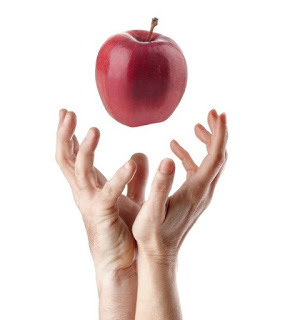 The traditional lens in which we view the Bible begins with the “disobedience” of Adam and Eve. As a result the rest of the Bible is seen as a battle between man’s disobedient nature and God’s perfect will.
The traditional lens in which we view the Bible begins with the “disobedience” of Adam and Eve. As a result the rest of the Bible is seen as a battle between man’s disobedient nature and God’s perfect will.But what if disobedience was not the motivation behind Adam and Eve’s failure rather the method they used to pursue that motivation?
The temptation presented to them was that by partaking of the forbidden fruit they could “be like God." If the motivation for their failure was to become like gods then it changes how the rest of the Bible is viewed going forward. Suddenly a string of things fall into place:
The failure of Adam and Eve was to become gods
The fall of Lucifer was his desire to dethrone God.
The builders of the Tower of Babel sought to reach heaven, the dwelling place of God.
The failure of Moses was when he declared himself equal with God when he asked the people, “Must WE bring water from this rock?”
The Israelite people were discontent not having a king to lead them. A king...a human raised up above others...basically a God.
Solomon built a temple for God before building himself a palace twice as big as the Temple.
Jesus accused the Pharisees of becoming barriers to God with their seeking of positions of honor. (to be worshipped.....like Gods).
The very disciples themselves broke into multiple arguments of who would be the “greatest” in the Kingdom of Heaven.
It still rages today, we see it in the pursuit of power by dictators, the pursuit of fame and adoration by celebrities, even in our churches where we place people on stages to be worshipped by congregations of thousands.
It’s found in the VIP section where people will distinguish themselves as more important than others.
What if the great fall of man is not rooted so much in disobedience as it is in the desire to be God, the desire to be above others, the craving of adoration?
Would the position of Christ suddenly become much more profound when we read:
“In your relationships with one another, have the same mindset as Christ Jesus: Who, being in very nature God, did not consider equality with God something to be grasped...” (Philippians 2)
He did not consider equality with God something to be grasped!!!! Is that how a man like David in all of his failures could be viewed as “a man after God’s own heart?” That while he failed in so many ways in reference to obedience, he still never attempted to over throw Saul to claim the throne for himself? And even while possessing the throne never saw himself on par with God.
Is it possible while obedience is important to God perhaps what He holds above that is simply the ability of a man to know his place? Is that why the first shall be last and the last first? That the path to God isn’t by way of climbing to the top of the social structure but descending to the bottom and taking up the role of a servant?
Is that why God is so hard for us to find? Because we keep looking for a “God”, an all powerful being, while He presents Himself as a servant? While we obsess with power He obsesses with love?
Is that why Christ was missed the first time? That it was a God obsessed humanity that kept taunting Him to use His great power to save himself and upon doing that they’d worship Him?
Is that why we still struggle to find him today? A God whose primary emphasis is love and humility will be hard to see by a humanity obsessed with power and fame. And perhaps even obedience is a concept we must be delicate with so as not to subconsciously deceive ourselves that our proximity to God is somehow affected by our actions rather than simply by our existence.
Published on May 22, 2018 07:30
May 21, 2018
You Will Be Like God
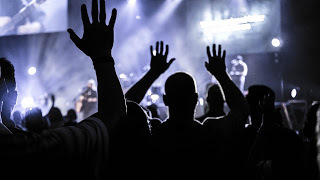 The traditional lens in which we view the Bible begins with the “disobedience”of Adam and Eve. As a result the rest of the Bible is seen as a battle between man’s disobedient nature and God’s perfect will.
The traditional lens in which we view the Bible begins with the “disobedience”of Adam and Eve. As a result the rest of the Bible is seen as a battle between man’s disobedient nature and God’s perfect will. But what if disobedience was not the motivation behind Adam and Eve’s failure rather the method they used to pursue that motivation?
The temptation presented to them was that by partaking of the forbidden fruit they could “be like God." If the motivation for their failure was to become like gods then it changes how the rest of the Bible is viewed going forward.
Suddenly a string of things fall into place:
The failure of Adam and Eve was to become gods
The fall of Lucifer was his desire to dethrone God.
The builders of the Tower of Babel sought to reach heaven, the dwelling place of God.
The failure of Moses was when he declared himself equal with God when he asked the people, “Must WE bring water from this rock?”
The Israelite people were discontent not having a king to lead them. A king...a human raised up above others...basically a God.
Solomon built a temple for God before building himself a palace twice as big as the Temple.
Jesus accused the Pharisees of becoming barriers to God with their seeking of positions of honor. (to be worshipped.....like Gods).
The very disciples themselves broke into multiple arguments of who would be the “greatest” in the Kingdom of Heaven.
It still rages today, we see it in the pursuit of power by dictators, the pursuit of fame and adoration by celebrities, even in our churches where we place people on stages to be worshipped by congregations of thousands.
It’s found in the VIP section where people will distinguish themselves as more important than others.
What if the great fall of man is not rooted so much in disobedience as it is in the desire to be God, the desire to be above others, the craving of adoration?
Would the position of Christ suddenly become much more profound when we read:
“In your relationships with one another, have the same mindset as Christ Jesus: Who, being in very nature God, did not consider equality with God something to be grasped...” (Philippians 2)
He did not consider equality with God something to be grasped!!!! Is that how a man like David in all of his failures could be viewed as “a man after God’s own heart?” That while he failed in so many ways in reference to obedience, he still never attempted to over throw Saul to claim the throne for himself? And even while possessing the throne never saw himself on par with God.
Is it possible while obedience is important to God perhaps what He holds above that is simply the ability of a man to know his place? Is that why the first shall be last and the last first? That the path to God isn’t by way of climbing to the top of the social structure but descending to the bottom and taking up the role of a servant?
Is that why God is so hard for us to find? Because we keep looking for a “God”, an all powerful being, while He presents Himself as a servant? While we obsess with power He obsesses with love?
Is that why Christ was missed the first time? That it was a God obsessed humanity that kept taunting Him to use His great power to save himself and upon doing that they’d worship Him?
Is that why we still struggle to find him today? A God whose primary emphasis is love and humility will be hard to see by a humanity obsessed with power and fame. And perhaps even obedience is a concept we must be delicate with so as not to subconsciously deceive ourselves that our proximity to God is somehow affected by our actions rather than simply by our existence.
Published on May 21, 2018 13:00
May 20, 2018
It’s Not Socialism or Capitalism.....it's Society
 One of the most controversial debates in society today, and for the past 100 years really, has been the debate between socialism and capitalism. While there is validity to both systems, thus the reason for the debate, sadly, proponents of both seldom acknowledge the benefits and detractions of each, often attacking each other’s characters instead.
One of the most controversial debates in society today, and for the past 100 years really, has been the debate between socialism and capitalism. While there is validity to both systems, thus the reason for the debate, sadly, proponents of both seldom acknowledge the benefits and detractions of each, often attacking each other’s characters instead. Over and over again, societies have seen the explosive growth that can occur with a free market, only to also see the accompanying greed and domination that can take place within that same free market. The naturally resulting, and compassionate, response to capitalism is normally some form of socialism, a system that attempts to help balance the wealth of a nation to the benefit of all.
Part of the reason these two ideologies clash is that they are viewed from the same foundation, that foundation being money. In capitalism, those at the top can become very, very wealthy, while those at the bottom can be very, very poor. While in socialism, the theory is that the gap between the top and bottom rungs of the financial ladder can be much closer as the wealth of a society is balanced more equally among its members.
Here is where the fundamental flaw takes place between the two theories -- it comes with the understanding of money. We tend to view money as the ultimate measurement of how well members of a society can live. If everyone has money, then by default everyone can live well. But what if we took this thinking all the way out to the end? What if everyone in a society could be wealthy?
The key to wealth is the ability to purchase things and, theoretically, the greater ability one has to purchase things the more wealth that person possesses. But if an entire society was wealthy, if wealth was spread evenly across a society so that everyone had the same, then money would essentially become worthless. Why bother with a monetary system when everyone has the same amount? At this point, the success of that society would shift from how much money people had, to how much work they were willing to do.
When we really break it down, money does not actually represent how much one can purchase -- its actually a way to measure work. We assign different values to different types and amounts of work. That value is measured as money. The flaw in arguing socialism vs capitalism is that it's not an argument of money vs money as it is so often presented. It’s actually an argument of work vs money. If tomorrow all the money in society was gone, and everyone still went to work, and everyone still took the same amount from the conglomerate amount of work that was done (same amount of groceries, gas, products, etc), society would still function.
But if everyone in society was suddenly given enough money that nobody had to work, it wouldn’t matter as nobody would go to work and therefore there would be nothing for anyone to purchase with all that money. While capitalism has its flaws...and let's be honest, it does....it's still the best thing we have come up with so far. No other system has done more to bring the whole of a society into a more comfortable standard of living. Are there winners and losers? Yes. Is it perfect? No. But is it the best thing we have at this point? Yes. And the reason why is capitalism is not rooted in money....its rooted in work. And that it is work that generates money, not money that generates work.
The current argument for socialism is rooted in money, and that's why it makes sense in theory but often breaks down when applied to societies. If the argument for socialism was work....that if we all worked, we would have no need for money... then it would be operating from a premise that is more consistent with what its root message actually is. The concern is it requires a truly intrinsic society, all of whom are willing to go to work for everyone else and trust others will do their part to take care of them as well. It’s a beautiful and selfless theory that could actually work in a utopian society.
This doesn’t make socialism naive or foolish. It makes it a beautiful system in which money is no longer needed. A system that itself isn’t flawed so much as the world we currently possess is still too flawed to pull it off. Therefore there is validity to both systems -- one system will work once society as a whole reaches a point of true intrinsic selflessness. The other is the best working thing we currently have for a broken world where self preservation is the prevailing mindset. Once society is selfless, there will be no need for money. But until then, capitalism is the best thing we’ve got.
Published on May 20, 2018 09:07
April 6, 2018
The Never Ending Price of Freedom
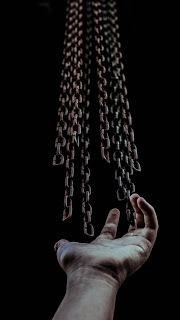 "Does a fish know it's in water?"
"Does a fish know it's in water?" This question is an old musing regarding the ability of one to recognize their circumstance when all they have ever known is that exact circumstance. I'm at a place in life where I'm growing concerned regarding the mindset of our society. It's occurred to me that the same question regarding fish and water can also be applied to people and freedom. It would be worded something like this:
"Do people who have only ever known freedom know they are free?"
We are in a fragile place here in America as we now live in a nation where the vast majority have only ever known freedom. As a result, we have a clear vision as to the negative aspects of freedom. Freedom means sometimes bad things happen as there are some people who will use their freedoms in a reckless manner and as a result cause harm to others. When this happens it is the anomaly and therefore stands out as an exception to regular everyday life.
Sadly, free people sometimes struggle to see the benefits of freedom as they don't see freedom as a blessing or benefit....they simply see it as normal...and when something is seen as normal, it can be hard to still see it as special. Once something is no longer seen as special, people become risk adverse to the prospect of keeping and preserving it as its value is unrecognized.
For example, in America it's very common for people to use cars. Cars are not really seen as a benefit so much as just a normal way of life. But there are some major negatives to the use and existence of cars in our country. In 2017 over 40,000 deaths nationwide were attributed to vehicles. Many of these were accidents but some were more malicious. Some people used their freedom to drive a vehicle irresponsibly and as a result people died. In addition to the fatalities some people use vehicles to commit horrible crimes. Vehicles have been used to abduct children, prostitution, smuggling drugs and weapons, murder, human trafficking, and many other awful things.
Everyone one of us in society who drives or rides in a car accepts the fact that we could be killed each time we get behind the wheel. Knowing that, we still use cars, embracing the likelihood of being killed or injured is small enough that it's worth the risk to drive. And while we can admit it's troubling and upsetting some will use vehicles for nefarious reasons, or that accidents occur, we also recognize those negatives are worth enduring due to the overwhelming benefit vehicles provide to society. But it's impossible to ignore that as good as it is to have the freedom to drive and own a vehicle, something embraced and savored by almost all, it does in fact come with a price.
There is always a price to freedom. And that price didn't stop when the final bullet of the revolution was fired. That price is constant and ongoing. One of the prices of freedom is that there is always a collateral side effect. One of those side effects is that some will use it in a destructive manner.
The state motto of New Hampshire is Live Free or Die. This motto very accurately captures the dichotomy of freedom. There is a very real possibility that the outcome of freedom for some is death. When the first ships set sail across the Atlantic in pursuit of freedom, the reality is some didn't make it. When refugees flee tyrannical nations to make a run at freedom, many die in the attempt.
As one who has never lived under true tyranny it's difficult for me to appreciate what these people must be experiencing to face almost certain death by challenging a foreboding ocean with only a life raft, or setting across hostile deserts with little more than a pair of tattered shoes and a jug of water. How bad must the absence of freedom be to risk so much and in many cases pay such a high price to attain it?
Is it possible that, like our cars, even though we strive to make improvements such as safety features, design, etc, there is one component we may never conquer? That component being the fact that there will always be some who choose to use their freedom in destructive ways?
Perhaps that is part of the price of freedom - that some casualties are simply inevitable, and as scary and disturbing as that is, it is still worth the alternative. A society that is not free.
The price of free speech is some will use it to say vile things and promote evil.
The price of gun ownership is some will harm others to the point of death.
The price of cars is some will be irresponsible and use them for evil, some will have accidents or back over a child, or whatever else.
When confronted with the pros and cons of different topics we often look at the topic itself rather than recognizing these are ultimately about freedoms. Every freedom we take from one who might use it carelessly is a freedom we also take from the rest of society to use for good.
The common component for heaven on Earth and hell on Earth are the same thing. Complete and total freedom. It's easy to see how complete and total freedom can lead to anarchy and thus hell on Earth. But could a utopian heaven on Earth ever be experienced without the existence of that same freedom?
A society motivated by fear must be very careful. For a fear based society will be tempted to seek to restrict the freedoms of those that scare them, unwittingly restricting their own freedoms as well. Eventually in an attempt to mitigate the inevitable detriments that come with freedom, a society could evolve to the point that its inhabitants are tempted to risk life and limb to flee their existence in pursuit of the very freedoms their parents and grandparents once possessed....but slowly gave away.
Published on April 06, 2018 21:44
April 1, 2018
Easter Sunday
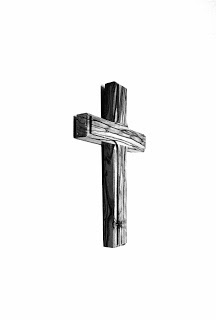 The journey of Cleopas
The journey of Cleopas
It is approaching midday as Cleopas and his unnamed friend are preparing to leave Jerusalem. The Passover and the Sabbath have now passed and things are beginning to calm down around the ancient city. The crowds are disbursing, returning to their hometowns.
Cleopas had hoped to leave earlier but was delayed by a rumor that Jesus' body was now missing from the tomb. Some of the women claimed to have been greeted by angels at the grave site where they were told Jesus had risen. When the rest of the disciples went to the tomb they found that it was empty, but there were no angels present.
As Cleopas and his friend set out on the seven mile journey to Emmaus, they are greeted by a stranger on the same path. In these times it was common for people to try to travel in groups due to thieves and bandits along the roadways.
As expected, Cleopas and his companion are overcome with confusion, disappointment and depression as a result of the events that have taken place the past few days. They now have very little to live for as their hopes of deliverance for the Jews was stolen away and killed in a matter of a few hours.
The teaching stranger
At one point the stranger asks them what their conversation is about. Cleopas immediately assumes that the man must have just arrived in Jerusalem and has no clue what has occurred. He tells him about Jesus and how they expected Him to be the deliverer of the Jews. They also express their disappointment at His death.
The stranger then asks them a question, "How foolish you are, and how slow of heart to believe all that the prophets have spoken! Did not the Christ have to suffer these things and then enter His glory?" At this he begins to teach the men of all the things the Scriptures said about the Christ. This conversation lasts the duration of their journey.
As the sun is setting into the evening hours, Cleopas and his friend reach their destination. The stranger continues on by himself but Cleopas pleads with him to stay the night with them. After some convincing, the stranger decides to stay.
Jesus breaks bread
After dinner is prepared the stranger breaks bread and gives thanks to the Lord for the food. As the bread is broken, both men noticed he prays for food in a way that is strangely familiar. Suddenly they realize this is no stranger. They are in the presence of Jesus. As soon as this realization takes place, Jesus disappears. Even though it is late, the two men immediately begin the journey back to Jerusalem to share the news of what they have just experienced.
And so here we stand today. We were not there to witness the events of 2,000 years ago. Like Cleopas and his friend, we never saw the empty tomb and all we know of Jesus' resurrection is from what others have told us. Like Cleopas and his friend, we are now left to walk the road of life in the presence of a Savior we may not always see, resting our faith on a testimony brought to us by ancient stories. And like Cleopas and his friend, we too have the responsibility to share the news of our experiences with our friends.
It is my hope that this week we have all had the opportunity to grow a little closer to God by taking a little closer look at Jesus' final week. I love you all and I pray that we will enter this next week compelled to remember that final promise, "And surely I am with you always, to the very end of the age." (Matthew 28:18-20).
Happy Easter!
Luke 24:13-35
Published on April 01, 2018 06:00
March 31, 2018
Passion Week- Saturday
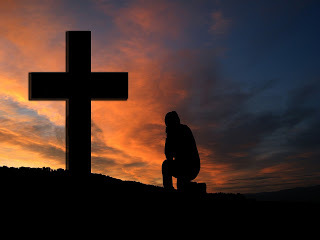 The disciples and the aftermath
The disciples and the aftermath
As the followers of Christ awake this morning they are greeted by a brief glimmer of hope that it was all only a dream, the same feeling many of us who have unexpectedly lost loved ones experience that next day. All night they replayed the events of the previous 24 hours in their minds. Again and again they see that strange encounter between Jesus and Judas. Over and over again they see Judas greet Him with a kiss. They see themselves running for their lives in the garden, again and again in their mind's eye they see Jesus writhing in pain as He was whipped, beaten, and tortured. The sounds haunt them as they can still hear His cries with each clank of the nails being driven. What a horrible night. Then, in complete exhaustion, they finally fell asleep.
Now as they begin to stir in the early morning that faint glimmer of hope quickly vanishes and is replaced with dread, shock, emptiness and sorrow as they soon realize that it was not a dream. They quickly scan the room and their eyes fall on the empty bed Jesus would have occupied. He really is gone. The man they had spent almost every waking hour with for the past three years was now gone.
Worse than that is the realization that they were wrong about this person who they thought was the Savior, the Son of God. They almost feel betrayed, yet at the same time, they loved Him too much to be angry.
All of this is compounded by the fact that they all know that they are marked men, and if they are not careful, they might all meet the same fate as their leader.
They all wonder, "Can this day be any worse?" As those words are pondered, suddenly the door to the upper room bursts open. They all jump, fearing the Romans are coming for them. Only it is not a soldier. Instead it is one of the other followers with a shocked look on his face trying to catch his breath.
"Judas!" he blurts out. "Judas is dead! They just found him outside the city gates. He hung himself next to the ravine.” It looks like the branch broke because when they found him he was laying at the bottom with the rope still around his neck and his body mutilated from the fall.
The disciples lose hope
At this point shock sets in again, only now they are too numb to cry. Another brother, another friend is gone. It is only now that the greater shock begins to set in. It will soon grow to hatred. Did Judas betray the master? No, he couldn't have, but why was he with the soldiers? They spend the rest of the day trying to make sense of it all. Time seems as if it has halted. There is no energy, no hope, no will to move on. Only despair. They are only left to wonder, "What now? What do we do? Where do we go from here?" All is lost.
Published on March 31, 2018 07:00
March 30, 2018
Passion Week: Good Friday
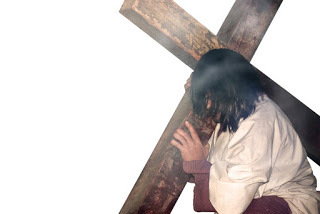 Jesus is beaten and bloody
Jesus is beaten and bloody
As we went to bed last night, Jesus would have just been taken captive in the garden. This morning we are awakened by the shouts of a crowd. Quickly we arise, get dressed and scurry down to the center of the old town to see what is going on. Here we find a lot has happened during our hours of slumber. The man we had seen praying in the garden last night now has His hands bound. His clothing torn and His face battered and bloody. His eyes are so swollen He is hardly recognizable.
We can now make out the cries of the crowd to be a death chant, "Crucify! Crucify!" The disciples are nowhere to be found and one of them, Judas, is now dead, hanging from a tree just outside of town.
Unbeknownst to most of Jerusalem, Jesus has been paraded around the city during the night to a series of kangaroo courts that attempt to condemn Him to death. At one point Jesus, who has now been separated from His disciples for several hours, is standing in the court yard of the high priest. The dawn is now fast approaching and our exhausted Christ is weary and beaten.
Peter denies Jesus for the third time
Suddenly, in the mist of the chaos Jesus hears a rooster crowing. He immediately turns and looks over His shoulder, locking eyes with a single person in the large crowd. It is Peter. When Peter notices Jesus is looking at him, his expression changes to that of pure horror. He melts to tears and runs from the area as he realizes, just as Jesus had predicted, that he had just denied Jesus for the third time.
Jesus is tortured by the cat of nine tails
As sunlight begins to break over the ancient city of Jerusalem, Jesus is led back to Pilate. Pilate has very little desire to have anything done with Jesus as he is unable to find any guilt in the man. In an attempt to satisfy the crowd, Pilate sends Jesus off to be scourged, in hopes it will suffice the hostile audience.
During this process, Jesus is whipped with a "cat of nine tails" a whip of nine strands held by a single handle. Braided into this whip are pieces of jagged bone and metal, designed to literally tear the flesh from the body. History shows that most people who endured scourging normally died anyway from the trauma of the event. After this, it is quite likely that parts of Jesus' rib cage would have been exposed as His flesh was sliced open as result of the severity of this practice.
Pilate's predicament
After this terrible torture, the people are still not satisfied. As a last ditch attempt to free Jesus, and thus save his own political skin, Pilate falls back on a tradition he has with the Jews of releasing a single prisoner at the time of Passover. He intentionally picks out the worst man he can think of, a violent rebel named Barabbas, a man he is sure the Jews will want to remain in custody. Pilate gives the people the option of either Jesus or Barabbas. The plan backfires when they unbelievably choose Barabbas.
Pilate is now caught in an odd predicament. Although history shows him to have been a rather cut throat individual, he has been instructed by Rome to keep things under control in the remote outpost of Jerusalem. If he supports the killing of Jesus, he will be condemning a man he knows is innocent which will not fare well. If he sets Jesus free he runs the risk of a complete riot which could cost him his position. On top of all of this, his wife has come to him and told him of a troubling dream she had about Jesus and warns him to have nothing to do with this situation. In an attempt to relieve himself of all responsibility, Pilate washes his hands of the situation and tells the Jews to do what they wish with Jesus. They call for him to be crucified.
Jesus carries his cross and is crucified
Sometime around 8 a.m., Jesus is led to a hill just outside the west wall of the town known as the skull. By this time He can barely even stand as a result of the brutal treatment He has endured. He is suffering from exhaustion, dehydration, blood loss, and indescribable pain. His condition is so poor that a man from the crowd is selected to carry the cross beam of Jesus' cross for him.
Once at the hill, about 9 a.m., Jesus' arms are nailed through his wrists to the cross beam. The cross beam is then hoisted up onto a larger stake that has been driven into the ground. When this action occurs, Jesus is pulled up from the ground by His arms that have been nailed to the wood. This act more than likely dislocates both shoulders and possibly His elbows. Jesus, now dangling by His arms, then has His feet nailed to the vertical stake that the crossbeam is now attached to. He will spend the next six hours in this position.
It is finished
As we go through our daily routines today, lets remember that from about 9 a.m. until 3 p.m., Jesus was suffering on the cross. During these hours of torment, Jesus still finds the love in His heart to ask God to forgive us for what we did to Him. As the 3 p.m. hour draws near, Jesus' mouth is so dry He can't even speak. A rag, soaked with vinegar wine, is then raise up to Him on a stick so He can wet His mouth enough to call out some of His final words. "IT IS FINISHED!"
These words were known as a victory cry in this time period. The phrase was often called out at the conclusions of battles. Jesus had been victorious. He had spent 33 years on this Earth living a perfect life and in spite of His desires, at times, to walk away from this responsibility He stayed true to the cause.
Quick work is now made to get Jesus off of the cross and buried prior to sunset as the Sabbath begins. Tonight as we are settling down with our families, let's remember the hopelessness the disciples and followers of Christ must have felt that night. They had just poured the last three years of their lives into a man who was supposed to be the one that would save them from their oppressors. All hope, all joy, everything is now gone. The so called "savior" is dead.
Matthew ch. 27, Mark ch. 15, Luke ch. 22:54- 23:56, John 18:25- 19:42
Published on March 30, 2018 06:00
March 29, 2018
Passion Week: Thursday
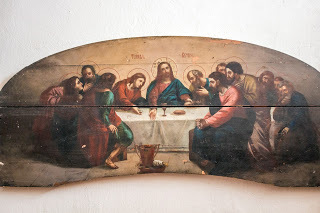 To get an idea of the significance of the next 36 hours we can look to the Book of John. The first 13 chapters of John deal with all of Jesus' life. The next six chapters alone deal with this short period of time!
To get an idea of the significance of the next 36 hours we can look to the Book of John. The first 13 chapters of John deal with all of Jesus' life. The next six chapters alone deal with this short period of time!The Passover dinner
I imagine Jesus must have awakened with a sick feeling in His stomach as He knew He had just experienced His last night of sleep. The story picks up with Jesus asking His disciples to find a place for them to have the Passover dinner. That evening, Jesus and the disciples gather to take part in the Passover meal. During this time, in an act of sheer humility, Jesus washes the disciple's feet. I wonder what He must have felt as He washed the feet of Judas? The feet that would soon be leading the soldiers to capture Him.
Jesus begins to tell the disciples of His coming death and predicts Peter will deny even knowing Him by day break. Jesus also identifies Judas as His betrayer to Peter and John with a simple piece of bread dipped in wine, an ironic symbol as Jesus later describes the bread and wine as symbols of His sacrifice.
Shortly after nightfall Judas leaves the meal for a reason unknown to the rest of the disciples. Unbelievably, after listening to Jesus preach on humility and servanthood for three years, and after Jesus just washed their feet as a servant, a argument about which disciple is the greatest begins. This is an interesting argument for a group of men who in about three hours will experience the greatest fall of their lives.
Jesus's battle at Gethsemane
As the meal concludes, probably around 9 p.m., the group leaves the upper room and begins to walk to the Garden of Gethsemane which is located across a ravine, several hundred yards from the east gate of the city. As they are walking, Jesus uses every last second to continue teaching these young men and comforts them as He speaks of His love for them.
Once at the entrance to the garden, Jesus calls for Peter, John and James to accompany Him away from the rest of the group to pray. Once they are separated, Jesus walks a little farther on and begins to passionately pray to the Father. It is apparent to the disciples that Jesus is under some sort of stress as He has been acting strangely all day. His demeanor has been very dark and here in the garden they see it reach its climax. Jesus is literally brought to His knees by this unknown stress. He actually begins to have droplets of blood form in His sweat (an extremely painful medical condition that has been observed in people under intense stress where the blood pressure rises to such a degree it begins to rupture the sweat glands).
Here, the salvation of the world hangs in the balance. Every moment from the fall of man until now is fixed on this one place in time. God has sent Jesus into the world to save it and in the garden we see Jesus actually express that He doesn't want to do it and pleads God to "...take this cup from me!"
Jesus grapples with this decision for an hour or so in what had to be the most intense spiritual battle of all time. One has to wonder if Jesus was still clinging to the slight hope that God would still spare Him? I wonder if His mind wandered back to Abraham and Issac. Perhaps He hoped that God would spare Him at the last second the way He spared Issac?
This emotional battle is so intense that an angel actually appears to encourage Jesus. I have to wonder why God had to send an angel to encourage Him? Could it possibly have been due to the fact that when Jesus needed encouragement most, His most devoted followers fell asleep? What if they had been praying with Him as He had asked them to? Would the angel have still needed to come?
Jesus faces his fate
In the end, we see a man who is completely exhausted and very much alone, suddenly gain the strength to rise to His feet. All hope of being spared by God is now gone and Jesus submits to His fate as He says, "Not my will but Your will be done." At the end of this time of prayer we see the same man who just a short time ago was in tears praying for the test to pass, now having the strength to actually walk out to meet the challenge.
The disciples are awakened by Jesus and jump to their feet as they hear a commotion coming their direction. They have a sick feeling in the pit of their stomachs that something very bad is about to happen. They watch with confusion in their eyes as Judas, who had just left the dinner a short time ago, approaches Jesus and identifies Him to the group of soldiers with the infamous kiss.
A fight breaks out and all the disciples, who had just sworn their willingness to die for Jesus, flee the area for their lives. During this altercation a man loses his ear only to have Jesus heal him before being lead away. It is now between 10 and 11 p.m. Jesus is bound and beaten as He will spend the rest of the night enduring six unfair trials that will eventually condemn an innocent man.
Tonight as we prepare for bed, let's think about the pain Jesus experienced in the garden as He fought so hard to be obedient to His Father's call. Let's not abandon Him to some other distraction tonight. No, tonight let us stand by our Savior in prayer as we failed to do 2,000 years ago and thank Him for choosing to provide us the salvation we so desperately needed.
Published on March 29, 2018 06:00
March 28, 2018
Passion Week: Wednesday
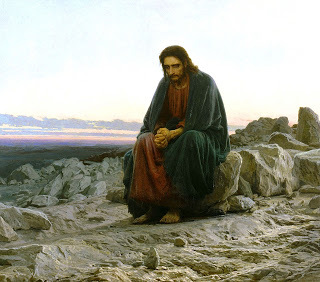 The day before the capture
The day before the capture
There is nothing mentioned in the Gospels about anything taking place on Wednesday. Many scholars believe Jesus may have used today to spend time with His family and loved ones, as it is the last day before His capture.
As for this day, we are only left to wonder what Jesus might have done. What would we do if we knew we were in our final hours? How would we spend these last few moments? Perhaps Jesus contemplated fleeing the city to avoid His death all together. Perhaps He walked the streets of Jerusalem preparing Himself for what He was about to endure. I imagine He probably spent time with His mother Mary, as this was the last full day He would spend with her as her son.
I wonder what Jesus will feel tonight as He goes to bed? Will He even be able to sleep? Perhaps, from where He is staying, He is able to hear the sounds of the thousands of sacrificial lambs that have been brought into the city for Passover. Will He listen to them tonight and think about their common fate?
There is no doubt that Jesus will spend the majority of this day in prayer. Maybe as Jesus lays down tonight He will think about His childhood. Will images of His teenage years and His deceased father Joseph enter his mind or will He think of the first day He met and called His disciples? I wonder if He questions where the time has gone and how quickly this night has come, how it seems like just yesterday He was a young boy in Galilee learning carpentry.
Maybe He will think of the generations of people who have come and gone who looked forward to His arrival and the salvation He would provide. Perhaps He thinks about the generations to come who have no idea He is saving them before they are even born.
Perhaps as His eyes are growing heavy, just before He is finally able to drift off for a few hours of sleep.............He thinks of you.
Published on March 28, 2018 06:00



